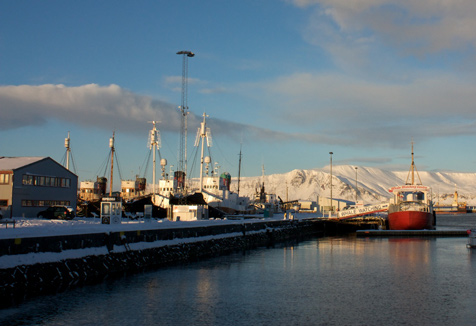Australia's whaling case against Japan inherently risky, says expert
The Federal Government’s whaling case in the International Court of Justice could have significant unintended consequences, even as it seeks to convince the Court that Japan’s whaling program is unlawful, according to an international law expert from the University of Western Sydney.
Professor Steven Freeland says it is by no means certain that all of Australia’s arguments will be accepted, which may leave the way open for Japan to continue its whaling activities.
“There is always the chance that the Court might be persuaded by Japan that the claims made by Australia are not substantiated,” says Professor Freeland.
“The risk is that, if the Court ruled that even some aspects of the whaling program are legal, Japan, and indeed other whaling nations, could be emboldened and seek even to extend their programs beyond their current scope.”
Steven Freeland, UWS Professor of International Law, has been a Visiting Professional within the Appeals Chamber of the International Criminal Court, The Hague, and is Marie Curie Professor Visiting Professor of International Law at the University of Copenhagen.

The irony: To the left are whaling ships, and to the right, whale watching vessels
Australia will shortly present its opening oral arguments to the Court in The Hague in its long awaited challenge to Japanese whaling in the Southern Ocean, fulfilling an election promise made by former Prime Minister Kevin Rudd.
Australia lodged its application for this case in 2010, and the period since then has seen both Australia and Japan submit their written pleadings, and New Zealand apply to intervene in the case as well.
Professor Freeland says that it still could be a considerable time before the Court delivers its decision, and it is possible that the results may be surprising.
“Australia is sending an excellent legal team to The Hague for this case, with the Attorney General Mark Dreyfus to also make an appearance, but Japan will no doubt have also assembled a formidable team for the three week hearing,” he says.
Although the pleadings by both Australia and Japan are not yet public, Professor Freeland says there is also a risk that adverse comments might be made by the Court regarding Australia’s Antarctic territorial claims.
“Although Australia will avoid making the claim that Japan is breaching Australian law, there is a possibility that Japan, in its arguments before the Court, may seek to raise the status of Australia's claims to large parts of Antarctic waters,” he says.
“Any suggestion by the ICJ adverse to Australia on this point could have consequences far broader than just the issue of whaling.”
Professor Freeland says the simple reality is the Court case could actually be detrimental to whales.
“In the end, the Australian Government’s aim here is to preserve whales and do everything possible to protect them,” he says.
“An approach, initially clouded by heavy emotion and now in the realms of an adversarial legal battle, may ultimately not be in the best interests of these magnificent creatures."
Ends
26 June 2013
Mobile options:

